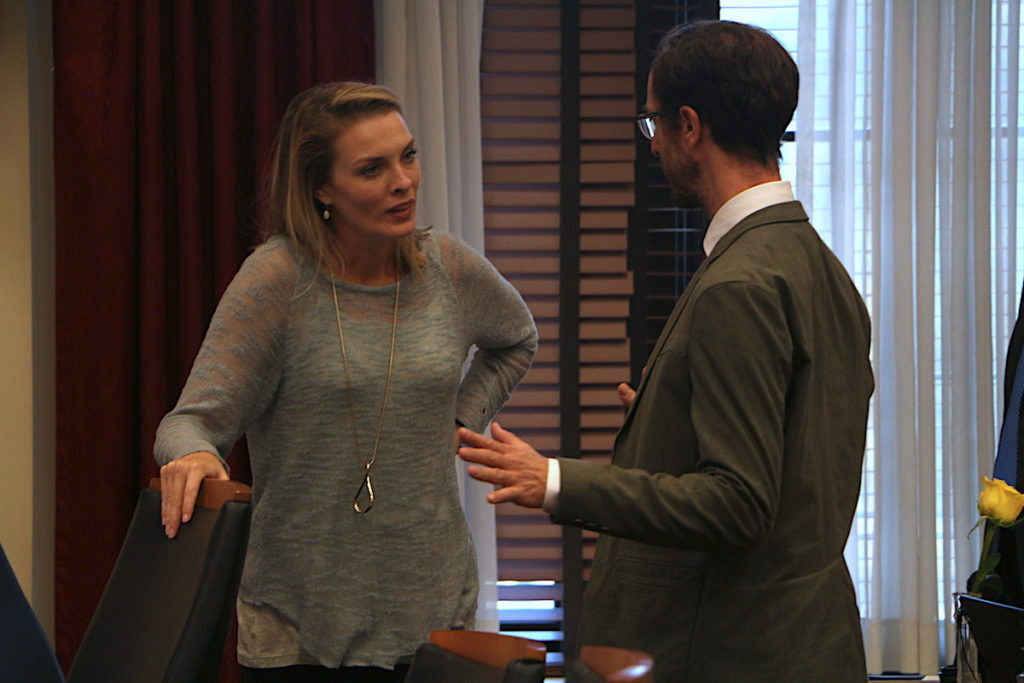
Nashville officials are debating whether the city should use license plate readers to try to solve crimes or continue to restrict their use.
The camera and computer software combination allows the devices to scan every license plate that passes by. The technology was originally proposed in two different bills to decrease drag racing in Southeast Nashville.
Councilmember Joy Styles withdrew her original legislation and is now re-presenting it to council. Her new proposal would require a six-month trial period for Council to determine if they’re interested in a long-term deployment. It would restrict storing the data for only seven days, and members of the council and Community Oversight Board would oversee audit logs.
Councilmember Courtney Johnston is delaying her bill until April and will expand its scope to allow any Metro agency to use LPRs. She’s now proposing the technology be used to investigate crimes, civil traffic and parking offenses as well as Amber Alerts. It would give city prosecutors and the public defender just 15 days to review what the cameras saw before the database is cleared.
Those two protections could limit the city’s ability to abuse their power, according to Vanderbilt security experts who answered questions during recent community meetings.
A third bill, proposed by Councilmember Freddie O’Connell, would allow LPRs, but only on police vehicles.
Surveillance of communities of color
During community meetings the ACLU, community advocates and some councilmembers of color voiced hesitation about the expansion of surveillance could harm Black and brown neighborhoods.
Johnston, who is white, says she is listening and has made changes to her proposal but ultimately wants to expand beyond the city’s limited use of LPRs. Currently, the law requires government agencies or individuals to get approval from Metro Council if they want to use the technology on roadways or other public spaces in the county.
“You have a lot of Black communities that are saying, ‘We want this,’ ” she says. “We’re tired of the drive-by shootings, we’re tired of the drug deals that are going on, they want more of a police presence there.”
She says it also isn’t equitable to place more LPRs in affluent areas like Green Hills because some people would say they get everything. Johnston says Metro departments like the police should decide where they’re installed.
The camera catches anyone driving past, so where the fixed cameras are installed is important for equity.
“Historically the Muslim community that’s most likely to be inappropriately targeted with this form of technology and surveillance in general,” Vanderbilt University research scientist Dan Balasubramanian says. “Those are legal opinions and findings. So there certainly is a risk.”
Residents weigh in
For a few weeks, the council paused debates to educate and get input from Nashville residents. But the head of the Community Oversight Board says that’s not enough, since some residents don’t have access to the online meetings.
“During the pandemic, this authentic community engagement is really not possible,” Community Oversight Board chair Andrés Martínez says. “And this is something that needs to be vetted by the community before going any further.”
Councilmember Freddie O’Connell, who co-wrote a third bill to allow LPRs on police vehicles, says the city should only consider license plate readers on a case-by-case basis.
“I remain skeptical that much of an open door to LPR deployment, again with Metro’s tacit approval, is going too far beyond the protections that I want to preserve for Nashvillians,” he says.
He and some others worry that in trying to solve crimes, too many drivers could end up being monitored. The auditor of California found 99% of cars scanned by LPRs aren’t connected to any wrongdoing.

